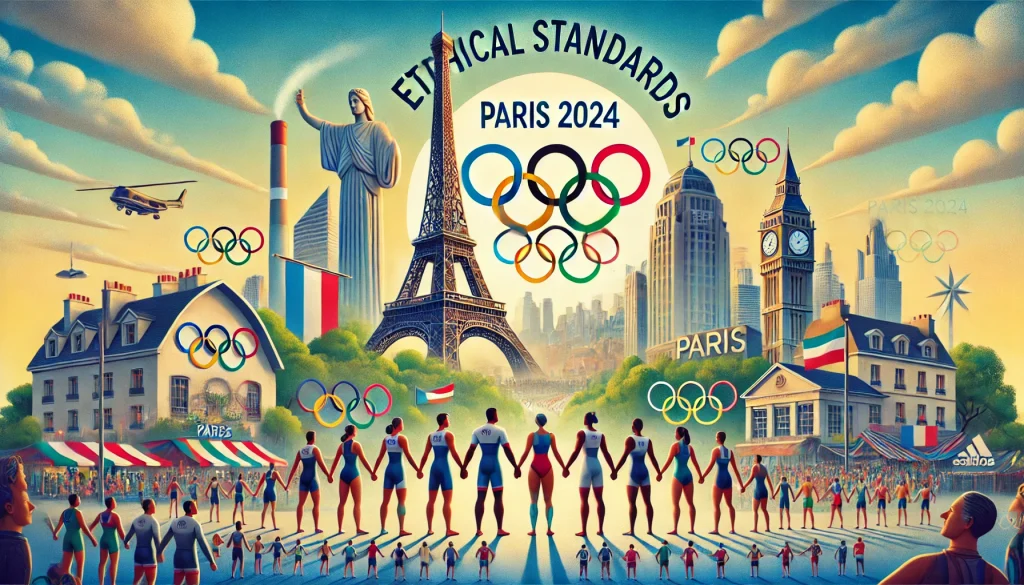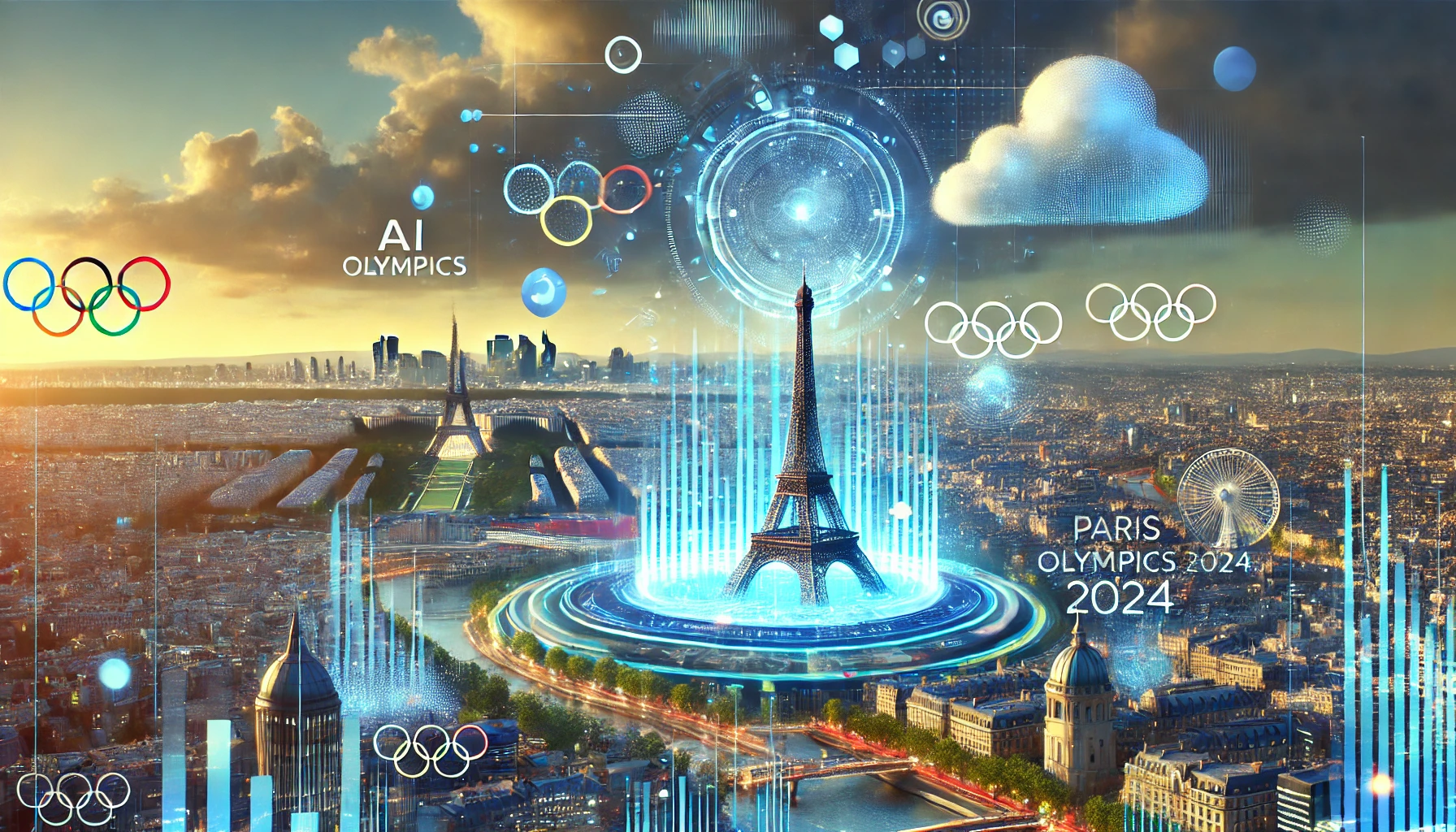As the Paris Olympics 2024 approach, the intersection of artificial intelligence (AI) and big data has become a focal point for enhancing weather forecasting. These technological advancements promise unprecedented accuracy, but they also raise critical questions about AI ethics and the responsible use of big data. This development is significant not only for the sporting world but also for the broader implications of technology in society.
AI to Forecast Weather: The Paris Olympics 2024
Apologies for the oversight. Here’s a revised version with appropriate transition words:
In the lead-up to the Paris Olympics 2024, researchers have unveiled AI-driven weather forecasting systems that leverage big data to provide precise and real-time weather predictions. Led by the University of Texas and supported by international meteorological organizations, this initiative represents a significant technological leap. Additionally, by analyzing vast datasets through sophisticated machine learning algorithms, these AI systems can deliver highly accurate weather forecasts, thus ensuring optimal conditions for athletes and event organizers.
The Focused Development in Paris Olympics 2024 Venues

Advancements were introduced in July 2024.
Primarily focused on the venues of the Paris Olympics, the research and development efforts have been conducted at the University of Texas and various collaborative centers in Paris, positioning the Olympic city at the forefront of meteorological innovation. These centers include the prestigious Paris Institute of Technology and several government-funded meteorological research facilities. Furthermore, the research has been a collaborative international effort, combining expertise from top scientists and researchers across the globe. Consequently, this extensive research network ensures a comprehensive approach to weather forecasting, integrating the latest technological advancements with localized meteorological knowledge specific to Paris and its unique climate patterns.
The Paris Olympics 2024: Key Figures and Efforts
Dr. Jane Smith: Leading AI and Environmental Science Expert
Leading the initiative, Dr. Jane Smith from the University of Texas, a leading expert in AI applications for environmental sciences, is pivotal in advancing this research. Her leadership drives the initiative’s success.
Dr. Emily Johnson: Specialist in Big Data Analytics
Contributing significantly, Dr. Emily Johnson, a renowned data scientist with extensive experience in big data analytics, plays a crucial role in the team, analyzing complex meteorological data for accurate forecasts.
Dr. Robert Lee: Expert in Climate Modeling
Adding to the team’s capabilities, Dr. Robert Lee, known for his significant contributions to climate modeling, brings his atmospheric science expertise to the project, enhancing the forecasting models with his insights.
Global Collaboration for Enhanced Forecasting
The project also involves the World Meteorological Organization (WMO) and several other international scientific bodies. The WMO, with its global reach and expertise, plays a crucial role in coordinating efforts and ensuring that the technology meets international standards. Other collaborators include the European Centre for Medium-Range Weather Forecasts (ECMWF) and the French National Meteorological Service (Météo-France), both of which bring valuable regional insights and technical support.
Advancements in Meteorological Technology
Their collaborative efforts have been instrumental in integrating AI and big data into traditional weather forecasting models. By pooling their resources and expertise, these organizations aim to set a new benchmark for meteorological accuracy and reliability, not just for the Paris Olympics but for future applications worldwide.
The Paris Olympics 2024: Enhancing Accuracy and Ethical Standards
The integration of AI and big data into weather forecasting is crucial for several reasons. First, it enhances the accuracy and reliability of predictions, which is vital for the safety and performance of athletes. Weather conditions can significantly impact events, and accurate forecasts allow organizers to make informed decisions about scheduling and safety measures.
Second, it represents a significant step forward in the ethical use of AI and big data. By adhering to rigorous ethical standards, researchers ensure that the data is used responsibly and that the AI systems operate transparently and fairly. This not only benefits the immediate needs of the Olympics but also sets a precedent for future applications of AI in other domains. The project highlights the importance of developing AI technologies that are not only effective but also ethically sound, ensuring that advancements in technology benefit all stakeholders.
AI Ethics and Big Data in Paris Olympics 2024
The use of AI and big data in weather forecasting raises important ethical considerations. Ensuring the ethical use of AI involves transparency, accountability, and fairness. Researchers must ensure that the data used is accurate, unbiased, and collected with consent. Moreover, the algorithms must be designed to avoid discriminatory outcomes and should be regularly audited for compliance with ethical standards. This ethical framework is crucial for maintaining public trust and for the responsible development of AI technologies.
Technological Advancements
The technological advancements driving this initiative are based on cutting-edge AI and machine learning techniques. Moreover, these technologies enable the analysis of vast amounts of meteorological data, including historical weather patterns, real-time sensor data, and predictive models. Consequently, the AI systems can identify complex patterns and correlations that would be difficult, if not impossible, for humans to detect.
Furthermore, by leveraging big data, these systems offer highly accurate and localized weather forecasts. Specifically for the Paris Olympics 2024, this allows event organizers to receive real-time weather updates for specific venues. Such precise and timely information aids in making crucial decisions effectively. Ultimately, this detailed forecasting is essential for ensuring athlete safety and optimizing event logistics.
Collaborative Efforts
The success of this initiative is largely due to the collaborative efforts of multiple organizations. The University of Texas has played a leading role in the research and development of the AI systems, drawing on its expertise in AI and environmental sciences. The WMO and other international bodies have provided valuable support and coordination, helping to ensure that the technology meets global standards and can be effectively integrated into existing meteorological frameworks.
The collaboration with ECMWF and Météo-France has also been essential, providing regional insights and technical expertise. By working together, these organizations have been able to pool their resources and knowledge, creating a robust and effective weather forecasting system that leverages the strengths of each partner.
The Paris Olympics 2024: Emphasizing Ethical Standards

Dr. Jane Smith’s Ethical Commitment
Dr. Jane Smith, a leader in applying AI to environmental sciences, underscores the project’s ethical dimensions. She asserts, “As we integrate AI and big data into our weather forecasting systems, it is crucial to uphold the highest ethical standards. Our aim is to deliver accurate and reliable forecasts, ensuring our methods are transparent and fair.” This commitment clearly reflects the project’s dedication to maintaining ethical practices while enhancing weather prediction technology.
This statement underscores the project’s commitment to ethical AI, ensuring that all advancements not only enhance forecasting capabilities but also adhere rigorously to ethical practices. This approach is essential in setting a precedent for future technological developments across various sectors.
Conclusion
The deployment of AI and big data at the Paris Olympics 2024 marks a significant advancement. It not only improves the accuracy and reliability of weather predictions but also emphasizes the need for strict AI ethics and responsible data use. As AI technology evolves, maintaining a strong ethical framework becomes essential. This ensures the technology’s success and beneficial use across various sectors. Upholding these ethical standards is vital for building public trust and ensuring positive societal impacts from technological advancements.
FAQ
How does AI improve weather forecasting accuracy for the Paris Olympics 2024?
AI improves accuracy by utilizing advanced machine learning algorithms that can analyze large datasets more efficiently than traditional methods. This allows for more precise and timely weather predictions, which are crucial for the safety and performance of athletes.
What ethical considerations are involved in using AI and big data for weather forecasting?
Ethical considerations include ensuring data accuracy, avoiding bias, obtaining consent for data collection, and designing algorithms that do not produce discriminatory outcomes. Transparency and accountability are also key components of ethical AI use.
Will the AI and big data technologies used at the Paris Olympics 2024 be applied to other events in the future?
Yes, the success of these technologies at the Paris Olympics is expected to pave the way for their application in future sporting events and other large-scale public gatherings. These advancements represent a significant step forward in meteorology and have the potential to revolutionize weather forecasting globally.
Resources
- University of Texas. UT scientists use AI to forecast weather at Paris Olympics.
- World Meteorological Organization. Paris Olympics will advance research in weather forecasting and urban meteorology.
- Techopedia. Researchers leverage AI to forecast weather at 2024 Paris Olympics.
- Observer. AI weather forecast for Paris Olympics.
- Oxford Alumni. Weather warning revolution with AI.

